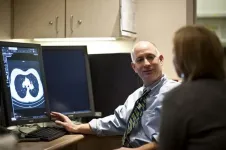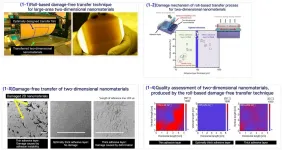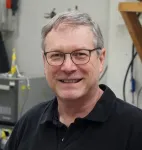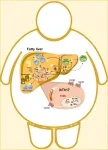Silvestri said the research began last year, inspired by the hotly debated topic of expanding Medicare insurance coverage to those under 65. Using the National Cancer Database, which contained data collected between 2004 through 2016 from over 1.2 million cancer patients, Silvestri began investigating lung cancer outcomes based on insurance status and age.
The findings in lung cancer were so surprising that the American Cancer Society recommended looking at 1-year, 2-year, and 5-year survival rates across the 16 most common cancers, including lung, breast, colon and prostate cancer. Due to the large study population, comorbidities and other disease factors were able to be matched across these four groups: uninsured patients 60 to 64 years old, private insurance patients 60 to 64 years old, Medicare patients 66 to 69 years old and Medicare plus private insurance 66 to 69 years old.
Generally, when comparing cancer survival among patients with similar stages and types of cancer, younger patients have better outcomes than their older counterparts, Silvestri said. However, this study found that across all 16 cancer types those younger than Medicare age (60 to 64 years old) without health insurance had significantly worse survival than their older counterparts.
"Further, there was a dose response gradient across the different insurance groups. Uninsured younger patients had the lowest survival, followed by older Medicare patients without supplemental private insurance, then older Medicare patients with supplemental private insurance, with younger privately insured patients having the best survival. The survival difference was quite surprising," he said.
"Even in cancers with poor five-year survival amongst all insurance groups, the differences observed between uninsured individuals 60 to 64 years old versus individuals ages 66 to 69 years old could be seen at one and two years with Medicare patients having significantly better survival at those yearly landmarks compared to younger uninsured patients," explained Silvestri, an MUSC Health lung cancer pulmonologist at Hollings.
Silvestri said this research is important to him given his personal experiences. As one of seven children in his family, Silvestri vividly remembers his family dealing with his father's cancer as he battled through treatments for more than five years. After his father's death, the financial burden did not stop as his mother kept paying the medical bills monthly for many years thereafter, despite his family having medical insurance.
Unexpected medical expenses are one of the leading causes of personal bankruptcy. Research published in a 2018 article in the American Journal of Public Health found that over 66% of personal bankruptcy is due to medical debt.
Due to the financial hurdle, uninsured patients often present with advanced, non-curable disease because they may delay medical care or be unable to afford screenings. Additionally, some cancer drugs cost tens of thousands of dollars annually, which may be more than double a household's annual income, he said.
"The results of this study lead me to ask this simple question: 'Is it OK for a patient to die from cancer simply because he or she does not have health insurance?' If the answer is 'no' to that question, then a true policy discussion needs to happen at a high level," Silvestri said.
As a pulmonologist, Silvestri is particularly interested in the insurance and survival disparities in lung cancer. Lung cancer is unique because it occurs primarily in smokers. According to the Centers for Disease Control and Prevention (CDC), approximately 30% of uninsured adults smoke, and smoking is more prevalent among people with a low annual household income. Since many smokers fall into a segment of the population that lacks insurance, this can affect their ability to pursue care, as many uninsured individuals will not seek regular lung cancer screening, he said.
"Fortunately, the cancer center is really well-positioned to help smokers with programmatic support," said Silvestri. Hollings, which is the state's only National Cancer Institute-designated cancer center, has a robust smoking cessation program, a lung cancer screening program, as well as rigorous disparities research, which has led to the implementation of novel programs across the state, he said.
While the current study focused on insurance disparities and survival outcomes in cancer, it is highly probable that these findings could be replicated in studies of other chronic diseases, such as diabetes and heart disease. Silvestri hopes this research will be a catalyst for conversations about the financial toxicity of cancer treatment, at the state and national level.
"Although I was initially surprised to see that lack of insurance was a greater predictor of worse outcomes in lung cancer than older age, I was even more shocked to see that this phenomenon was true across all major cancer types. People who want to change the paradigm need to make it personal and share the numerous stories of patients who, after they are told they have cancer and their world is turned upside down, are forced to ask, 'How am I going to afford this?' rather than 'What can we do to cure me?'" said Silvestri.
INFORMATION:
Funding: The American Cancer Society database is funded by the public.
About MUSC
Founded in 1824 in Charleston, MUSC is the oldest medical school in the South as well as the state's only integrated academic health sciences center with a unique charge to serve the state through education, research and patient care. Each year, MUSC educates and trains more than 3,000 students and nearly 800 residents in six colleges: Dental Medicine, Graduate Studies, Health Professions, Medicine, Nursing and Pharmacy. The state's leader in obtaining biomedical research funds, in fiscal year 2019, MUSC set a new high, bringing in more than $284 million. For information on academic programs, visit musc.edu.
As the clinical health system of the Medical University of South Carolina, MUSC Health is dedicated to delivering the highest quality patient care available while training generations of competent, compassionate health care providers to serve the people of South Carolina and beyond. Comprising some 1,600 beds, more than 100 outreach sites, the MUSC College of Medicine, the physicians' practice plan and nearly 275 telehealth locations, MUSC Health owns and operates eight hospitals situated in Charleston, Chester, Florence, Lancaster and Marion counties. In 2020, for the sixth consecutive year, U.S. News & World Report named MUSC Health the No. 1 hospital in South Carolina. To learn more about clinical patient services, visit muschealth.org.
MUSC and its affiliates have collective annual budgets of $3.2 billion. The more than 17,000 MUSC team members include world-class faculty, physicians, specialty providers and scientists who deliver groundbreaking education, research, technology and patient care
About MUSC Hollings Cancer Center
MUSC Hollings Cancer Center is a National Cancer Institute-designated cancer center and the largest academic-based cancer research program in South Carolina. The cancer center comprises more than 100 faculty cancer scientists and 20 academic departments. It has an annual research funding portfolio of more than $44 million and a dedication to reducing the cancer burden in South Carolina. Hollings offers state-of-the-art diagnostic capabilities, therapies and surgical techniques within multidisciplinary clinics that include surgeons, medical oncologists, radiation therapists, radiologists, pathologists, psychologists and other specialists equipped for the full range of cancer care, including more than 200 clinical trials. For more information, visit hollingscancercenter.musc.edu.







